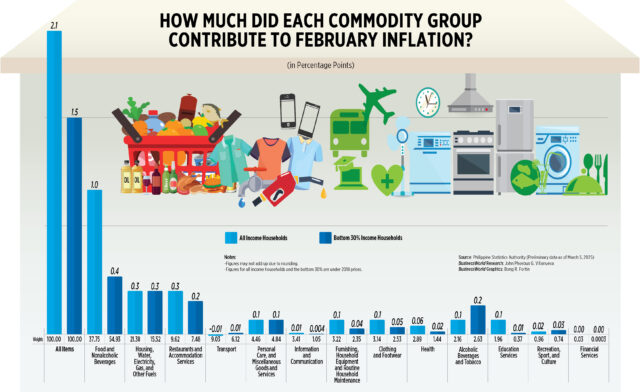HONG KONG/LONDON – Some shipping companies are discreetly moving operations out of Hong Kong and taking vessels off its flag registry. Others are making contingency plans to do so.
Behind these low-profile moves, six shipping executives said, lie concerns that their ships could be commandeered by Chinese authorities or hit with U.S. sanctions in a conflict between Beijing and Washington.
Beijing’s emphasis on the role of Hong Kong in serving Chinese security interests and growing U.S. scrutiny of the importance of China’s commercial fleet in a possible military clash, such as over Taiwan, are causing unease across the industry, the people told Reuters.
The U.S. Trade Representative’s office last month proposed levying steep U.S. port fees on Chinese shipping companies and others that operate Chinese-built vessels, to counter China’s “targeted dominance” of shipbuilding and maritime logistics.
Washington in September warned American businesses about growing risks of operating in Hong Kong, where the U.S. already applies sanctions against officials involved in a security crackdown.
Hong Kong for more than a century has been a hub for shipowners and the brokers, financiers, underwriters and lawyers supporting them. Its maritime and port industry accounted for 4.2% of GDP in 2022, official data show.
The city’s flag is the eighth most-flown by ships worldwide, according to VesselsValue, a subsidiary of maritime data group Veson Nautical.
Reuters interviews with two dozen people, including shipping executives, insurers and lawyers familiar with Hong Kong, revealed growing concern that commercial maritime operations could be ensnared by forces beyond their control in a U.S.-China military clash.
Many pointed to China’s intensified focus on national security objectives; trade frictions; and the broad powers of Hong Kong’s leader, who is accountable to Beijing, to seize control of shipping in an emergency.
“We don’t want to be in a position where China comes knocking, wanting our ships, and the U.S. is targeting us on the other side,” said one executive, who like others was granted anonymity to discuss a sensitive issue.
The concerns of shipowners and their actions to curb exposure to Hong Kong have not been previously reported. The perceptions of risk have grown in recent years, coinciding with a tightening security climate in the Chinese-ruled city and tensions between the world’s two largest economies.
TURNING TIDE
Commercial ships must be registered, or flagged, with a particular country or jurisdiction to comply with safety and environmental rules.
Despite an influx of Chinese-operated ships onto Hong Kong’s registry, the number of oceangoing vessels flagged in the city fell more than 8% to 2,366 in January from 2,580 four years earlier, according to independent analysis by VesselsValue. Government data show a similar drop.
Among the ships that left Hong Kong’s registry, 74 re-flagged to Singapore and Marshall Islands in 2023 and 2024, chiefly dry-bulk carriers designed to transport commodities such as coal, iron ore and grain. Some 15 tankers and seven container ships separately left the Hong Kong registry for those flags, according to VesselsValue.
The outflow of ships since 2021 marks a reversal for Hong Kong’s registry, which official data show grew roughly 400% in two decades following 1997.
In response to Reuters questions, Hong Kong’s government said it was natural for shipping companies to review operations given changing geopolitical and trade circumstances, and normal for the number of ships on registries to fluctuate in the short term.
Hong Kong would “continue to excel as a prominent international shipping centre”, a spokesperson said, outlining a range of incentives for shipowners, including profits tax breaks and green subsidies.
Neither the laws governing the registry nor emergency provisions empowered Hong Kong’s leader to commandeer ships to serve in a Chinese merchant fleet, the spokesperson said.
The spokesperson declined to elaborate when asked about industry players’ concerns over how colonial-era emergency powers might be applied during a U.S.-China conflict. The provisions allow the city’s leader to make “any regulations whatsoever”, including taking control of vessels and property.
China’s defense and commerce ministries didn’t respond to questions about the role of a merchant fleet in Beijing’s warfighting plans, the potential involvement of Hong Kong-flagged vessels, and the worries of commercial shipowners.
The U.S. Treasury and Pentagon declined to comment about potential sanctions, shipping executives’ concerns, and the role of Hong Kong-registered vessels in a Chinese merchant fleet.
Lawyers and executives say ships can be re-flagged for various reasons through sale, charter or redeployment to different routes.
Basil Karatzas, U.S.-based consultant with Karatzas Marine Advisors & Co, said Singapore had become the preferred domicile for companies with lesser exposure to Chinese shipping and cargo trade, because it offered many efficiencies, including its legal system, but less risk than Hong Kong.
Singapore’s Maritime and Port Authority said decisions about domiciles and flagging were based on commercial considerations. It had not observed any “significant change” in the number of Hong Kong-based shipping companies relocating operations or re-flagging vessels to Singapore.
MERCHANT FLEET
Hong Kong’s shipping registry is widely regarded for its safety and regulatory standards, executives and lawyers say, allowing its ships to pass easily through foreign ports. Hong Kong’s flag is now flown by many of China’s state-owned international vessels.
In a conflict, these tankers, bulk carriers and large container vessels would form the backbone of a merchant fleet serving the People’s Liberation Army to supply China’s oil, food and industrial needs, according to four security analysts and PLA military studies.
By contrast, the U.S. has a small commercial shipbuilding industry and far fewer ships under its flag.
While China’s state-owned fleet is growing in size, it would be a target for the U.S. in a military clash, and Beijing would likely require other vessels to ensure supplies given its vast needs and reliance on international sea lanes, three analysts said.
Strategic maritime operations have surfaced on President Donald Trump’s radar. In his inauguration speech in January, Trump threatened to “take back” the Panama Canal, which he said had fallen under Chinese control.
He did not give specifics, but Mr. Trump’s remarks focused attention on two Panama ports operated by a subsidiary of Hong Kong conglomerate CK Hutchison Holdings. The group, which didn’t respond to questions about Trump’s comments, agreed this week to sell a majority stake in the subsidiary to a consortium of investors led by BlackRock, giving U.S. interests control over the ports.
Mr. Trump told Congress on Tuesday that his administration will create an office of shipbuilding in the White House and offer new tax incentives for the sector.
A U.S. congressional study in November 2023 stated that “cargo ships typically transport 90% of the military equipment needed in overseas wars”. It noted that Chinese shipyards had 1,794 large oceangoing ships on order in 2022, compared with five in the U.S.
Merchant vessels were vital in Britain’s long-range mission to retake the Falkland Islands from Argentina in 1982. And UK-flagged commercial ships operating out of Hong Kong – many owned by local firms dependent on or controlled by China – supplied communist Hanoi during the Vietnam War, frustrating the U.S., declassified CIA documents show.
The need for a strong Chinese merchant fleet to help build China’s maritime power was outlined by President Xi Jinping in a Politburo study session in 2013.
Over the last decade, Chinese government and military documents and studies have highlighted the dual-use military value of China’s merchant ships.
Regulations enacted in 2015 required Chinese builders of five types of commercial vessels – including tankers, container ships and bulk carriers – to ensure they could serve military needs, according to state media.
Since then, the state-owned COSCO line has grown significantly.
Public COSCO documents show China is placing political commissars – officers who ensure Communist Party goals are ultimately served – on nominally civilian ships.
In January, the U.S. blacklisted COSCO subsidiaries for what it said were links to the Chinese military.
COSCO did not respond to questions about its deployment of commissars, the U.S. restrictions and what role the company’s ships, including Hong Kong-flagged ones, might play in a wartime scenario.
‘REALLY DE-RISKED’
Hong Kong remains an important base for shipowners, despite the geopolitical challenges. But some are quietly hedging their bets.
One company founded in Hong Kong in 2014, London-listed Taylor Maritime TMI.L, now has a smaller presence in Hong Kong after making several strategic moves over the past few years.
Since 2021, it has kept its ships flagged in the Marshall Islands and Singapore. Its offices are in London, Guernsey, Singapore, Hong Kong and Durban.
The firm “really de-risked Hong Kong”, said a person familiar with the matter, citing investors’ concerns about a Chinese invasion of Taiwan and the Communist Party’s increasing control of Hong Kong.
A Taylor Maritime spokesperson said that initially, the company moved its Asia-based commercial teams to Singapore from Hong Kong to be closer to clients.
With its acquisition of shipping company Grindrod, which had its Asia office in Singapore, Taylor Maritime expanded its operation there and relocated some functions from Hong Kong, to the point where Singapore became its primary Asia hub, the spokesperson added.
Hong Kong-listed Pacific Basin Shipping 2343.HK has traditionally flagged its 110-strong fleet of bulk carriers in Hong Kong but is drafting contingency plans to register them elsewhere as it gauges potential risks, said two people familiar with the matter.
A Pacific Basin spokesperson said the company was constantly evaluating geopolitical risks but that its fleet was still flying the Hong Kong flag, “which at least for now outweigh(s) the challenges”.
“Being in Hong Kong positions us close to China’s 40% share of global dry bulk import/export activity and close to Asia’s strong economic and industrial growth regions,” the spokesperson said.
Angad Banga, chairman of the Hong Kong Shipowners Association, said shipping firms adjusted contingency plans based on risk assessments in a complex geopolitical environment but he had not encountered concerns about the commandeering of vessels.
“While some may be reviewing operational strategies, we as an organisation do not to see any widespread exodus or loss of confidence in Hong Kong,” Banga told Reuters, adding that the city remained attractive for maritime commerce.
Yet some industry figures described a broad unease about Hong Kong that was affecting their planning.
Three lawyers said that until recent years, contracts hammered out for the growing number of ships built in China and financed by Chinese banks typically stipulated that they must fly the Hong Kong flag.
But over the last two years, some have included a caveat demanded by owners to provide flexibility: a few other prominent flags are listed as options alongside Hong Kong, the lawyers said. Reuters could not independently verify the changes.
Beyond China’s military modernization and its refusal to renounce the use of force to seize Taiwan, Beijing officials have stressed the importance of Hong Kong in fulfilling national security priorities.
Three executives and two lawyers told Reuters that sweeping security legislation, first imposed on Hong Kong in July 2020 and strengthened in March 2024, had added to the dangers.
The lawyers said any move by Hong Kong’s leader to commandeer vessels in an emergency might prove difficult in practice, as locally registered ships often plied routes far from Hong Kong. But such long-standing powers now had to be viewed through a national security lens, they said.
Some shipowners wouldn’t object to an official request to turn over their vessels, either out of patriotism or the potential to profit from a crisis, one lawyer said.
But “it is better not to be in a position where you might even be asked”, said another veteran lawyer.
“It was not an issue just a few years ago, in what is clearly a redrawn national security map.” – Reuters












